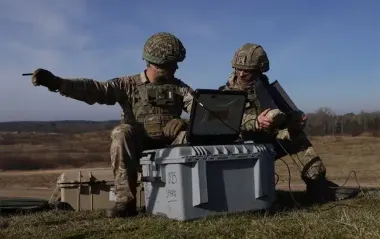Britain conducts secret exercises in the Arctic amid possible Russian aggression

Britain is preparing for a possible war in the Arctic with Russia
In Buda, in northern Norway, half a mile inside the mountain, British soldiers, together with their allies, are practicing actions in the event of a new round of Russian aggression.
The exercises are taking place in a strategic area between the sea and the snow-capped peaks of the Arctic Circle, where planners are simulating situations that could arise if Moscow steps up hostile activity near allied borders.
The exercises involve practicing a scenario that unfolds a year after the conditional ceasefire in Ukraine and include a comprehensive simulation: from recording pro-Russian unrest in neighboring countries to analyzing disparate intelligence data and information from social networks.
Defense ministers and generals are being asked to make decisions in conditions that are as close as possible to real crisis situations.
Such exercises are not purely theoretical. In recent years, Europe has been faced with an increasing number of incidents: an unknown attack on an undersea cable in the Baltic Sea, violations of NATO airspace by Russian drones and aircraft, active maneuvers by Russian ships near British waters.
All this highlights the vulnerability of the so-called "far north."
It is worth noting that after the occupation of Crimea in 2014, the United Kingdom created the Joint Expeditionary Force (JEF), an alliance of ten countries focused on countering threats in the northern region.
Today, the JEF faces the question of whether it will be able to operate effectively in the face of Russia's changed tactics and the US's weakened focus on European security under the Donald Trump administration.
Climate change is also making the Arctic more dangerous: melting ice opens up new routes and stimulates competition for access to natural resources, involving not only Russia but also China and the United States.







